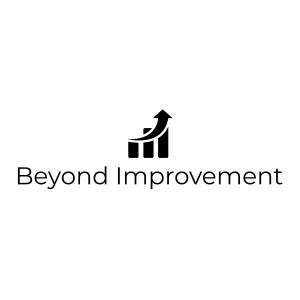How to Survive an Audit and Come out Smiling
Written by Nathaniel Smith of Beyond Improvement
Preparation is Not Everything
Contrary to common belief, there is only so far you can go to prepare for an audit and, depending on the nature of the audit, sometimes it is best not to prepare at all.
The reality may be that you don’t have the time or resources to make EVERYTHING ‘perfect’, or even just to make it look perfect for the audit.
What’s more, even with an agreed agenda, the challenge is often knowing what specific direction the auditor may take, and what evidence trails they will follow.
Consider for a moment, that if you went out for a meal with some friends to a restaurant you had not been to before, could you correctly predict what everyone would order to eat and drink?
Everyone has different tastes, which can vary from one day to the next depending on a whole raft of variables and factors.
Trying to predict specifically what an auditor will look at can be a shot in the dark. Perhaps you have repeat audits with the same auditor, looking at the same processes each time. However, in my experience, many auditees have spent late nights preparing for an audit in an effort to cover all possible areas. Ever had that feeling of please don’t look in ‘that’ file or cupboard?
Priority is key here, focussing on bigger gaps, areas you know to be not right, not compliant or could be most severe. Your auditor is likely to look at the biggest risks first.
Consider what your business priorities are, and the type of audit i.e. regulatory compliance, insurance, customer, supply chain, certification. All will have biases or ‘risks’ they will focus on, use these as key start points. And try to at least formally record/identify those areas you know are gaps but have not yet been able to address, as this at least demonstrates self-awareness and intention.
There can be a good reason to not prepare at all…
If the audit is internal, or you are paying for a third-party audit to improve your business/maintain certification, then consider not preparing at all. This will better reflect your current situation (i.e. business as usual) and can maximise the benefit and value from the audit process. Should documents/processes not occur normally throughout the year?
Audit findings can provide great impetus and buy-in from stakeholders to address areas for improvement or get any necessary resources.
Be Open and Honest
It should go without saying, but being open and honest will always be better received by the auditor. Most auditors will be able to tell if you are trying to pull the wool over their eyes, fictitious stories and fabrication of evidence can often fall apart, possibly making an auditor more determined to catch you out and resulting in more severe findings.
Try to also look at these situations from the auditor’s point of view – would you like to be conned or lied to? Auditors have a job to do too. Sometimes they can be helpful allies, providing further guidance or insight into any issues. They are not always out to ‘get you’ and are often keen to make a difference to help improve your business, so don’t see them as the enemy.
An audit may help to keep people safe, aid the business to be legally compliant or financially secure, boost customer satisfaction, be environmentally sustainable – and much more.
If you have gaps, talking about them proactively can be very beneficial, especially if you have already identified or recorded along with your plans to address it. The auditor may still raise it as an issue but they may mitigate this or reduce the severity in recognition of your plans to address it.
A third-party auditor may have even more experience, visiting up to hundreds of businesses each year, seeing what works and what doesn’t, resulting in genuinely helpful feedback.
So, look for the benefits rather than dreading the outcome.
And Breathe!
Understandably some people can get very nervous, before and during an audit. Try to relax, taking on board the points above.
Remember that whilst the audit has a purpose and the auditor has a job to do, many auditors (including those of a regulatory purpose), like to help.
Asking relevant questions, examples of best practices or ideas (where they can be given) can be very valuable to you and your business.
I personally have seen many auditees go from a state of physical nervous shaking at the start to a happy, warm smile at the end of the audit, finding it informative, helpful and even sometimes fun!
ISO Terms Explained

To the novice quality manager, ISO jargon can be extremely overwhelming. What is an NCR? What do you mean by OFI? Are we certified or accredited? But before you go and pull out your hair, let’s take a moment to go over some of the most frequently used terms and their definitions with regards to ISO and Management System Certification.



